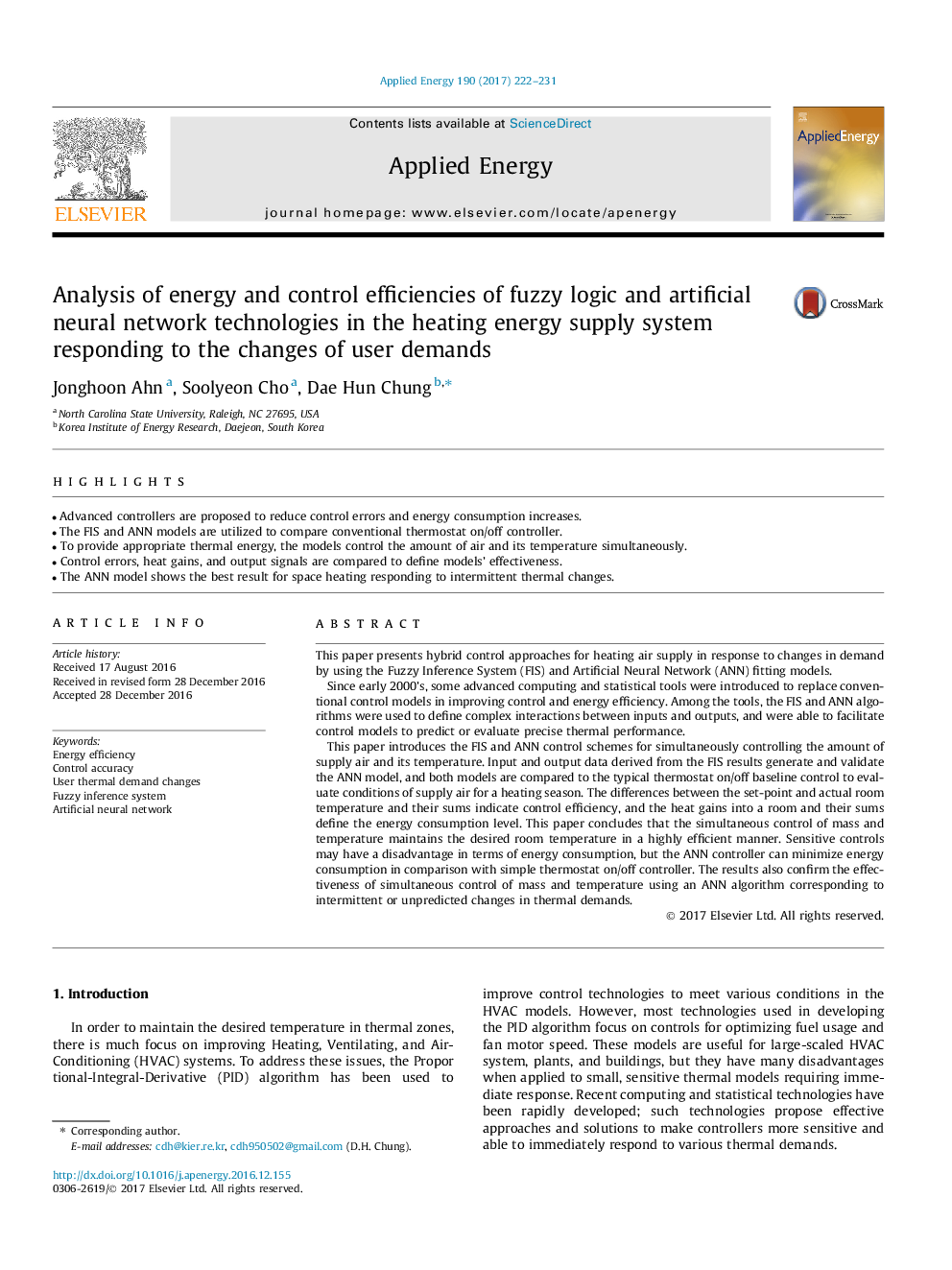ترجمه فارسی عنوان مقاله
تجزیه و تحلیل اثربخشی انرژی و کنترل منطق فازی و تکنولوژی های شبکه عصبی مصنوعی در سیستم تامین انرژی گرمایی که به تغییر خواسته های کاربر پاسخ می دهد
عنوان انگلیسی
Analysis of energy and control efficiencies of fuzzy logic and artificial neural network technologies in the heating energy supply system responding to the changes of user demands
| کد مقاله | سال انتشار | تعداد صفحات مقاله انگلیسی |
|---|---|---|
| 98813 | 2017 | 10 صفحه PDF |
منبع

Publisher : Elsevier - Science Direct (الزویر - ساینس دایرکت)
Journal : Applied Energy, Volume 190, 15 March 2017, Pages 222-231
ترجمه کلمات کلیدی
بهره وری انرژی، دقت کنترل، کاربر تغییرات تقاضای حرارتی، سیستم استنتاج فازی، شبکه های عصبی مصنوعی،
کلمات کلیدی انگلیسی
Energy efficiency; Control accuracy; User thermal demand changes; Fuzzy inference system; Artificial neural network;

